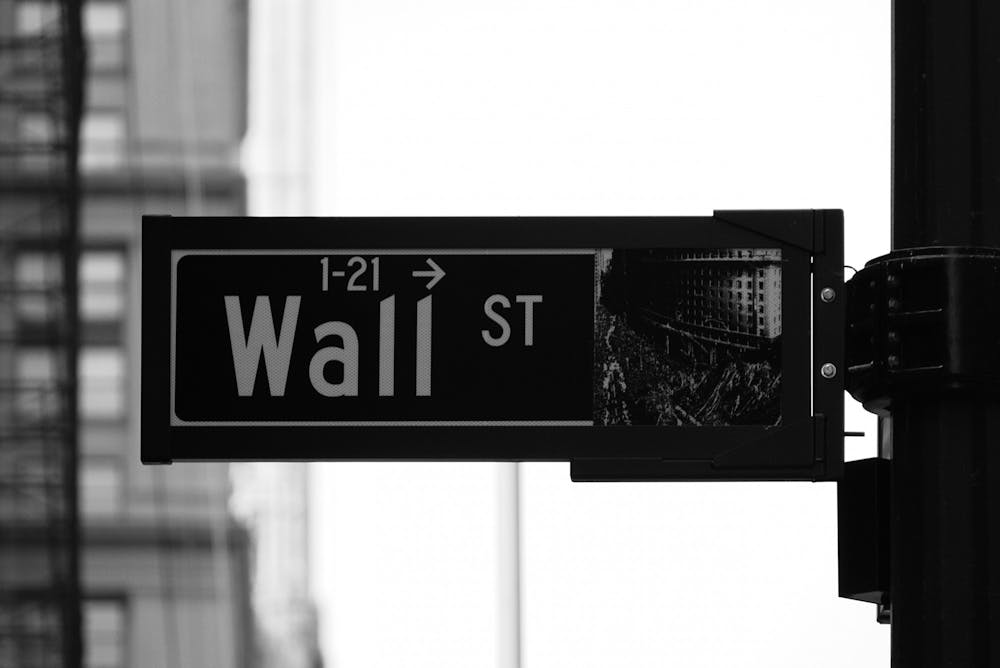Michael Hicks, professor of economics and director of the Center for Business and Economic Research, said he predicts a 50 percent chance of a recession — a period of diminishing economic activity — in the United States over the next year.
There have been 12 recessions since World War II, Hicks said, and America may be due for its first recession since the Great Recession of 2007-09.
Those 12 recessions, he said, have a direct correlation with the state of manufacturing employment in the Midwest. Hicks said when there are fewer manufacturing employees at the end of a year than there were at the beginning, that’s what leads to the recessions.
According to the Bureau of Labor Statistics, Indiana has seen an increase in the number of manufacturing employees every year since 2010. However, since June 2019, the state has seen this number decline the past four months.
These projections, Hicks said, indicate that there will be a decrease in manufacturing employees by the end of this year. However, he said, these factors do not necessarily indicate the severity of a coming recession.
“I think it’d probably be shorter and less dramatic [than the 2007-09 recession],” Hicks said. “If you’re a manufacturing employee … it would be more painful. We have fewer of those now, so it’s more like a sectoral recession and concentrating a few geographies maybe.”
A sectoral recession, he said in an email response, could affect “any business that produces a good or service sensitive to changes in business or consumer spending,” listing RV dealers, car lots and restaurants as potential sectors.
Aaron Tipp, assistant store manager at the recently opened Yats restaurant in the Village, said a recession could hurt his restaurant’s profits — particularly for a new business.
“Same as any other business, if there aren’t customers buying food, it’s going to hurt our overhead,” Tripp said. “That’s going to unilaterally affect all businesses.”
However, not all business owners in the Village feel that a recession will hurt their business.
Derek Edwards, owner and manager of White Rabbit Used Books, said his business actually improves during recessions.
“Recessions, oddly enough, actually help my business since I deal in secondhand stuff,” Edwards said. “People come buy used stuff during times of economic crisis because they can’t afford new.”
During its nearly 30 years in the Village, his store has seen as much as a 10 percent increase in profits — especially during recent recessions.
Edwards said pawn shops and resale locations like his bookstore will also end up purchasing more goods for resale because people are more willing to sell their possessions during a recession to stay afloat financially.
Overall, he said, he is optimistic about the Village’s business prospects during a recession.
“All the small businesses seem to ride it out,” Edwards said. “There are a few things that collapse during that time, but the Village has existed in one way or another since the 1920s, and I think we all managed to stay afloat. Might have to dog paddle for a while.”
Hicks remained similarly optimistic about the impact it may have on students, saying those who are currently in school “won’t notice it.”
The unemployment rate of graduates, Hicks said, is at a 50-year low, though some graduates may experience delays coming out of college depending on the softness of the labor market.
“If you're graduating, it will make finding a job harder,” Hicks said. “Typically, businesses are a lot more reluctant to hire during a recession, but even during the last recession, which was the worst in 70 years, most new college graduates found employment very quickly.”
Hicks said the best defense students can adopt in the face of a recession is finding more experience in their fields and taking more challenging classes, measures that will make them attractive to potential employers.
“If you’ve done poorly in school, it’s fairly likely that you’re going to have difficulty convincing employers that all of the sudden your behavior is going to change and you’re going to do well in the labor market,” Hicks said.
Contact John Lynch with comments at jplynch@bsu.edu or on Twitter @WritesLynch.





